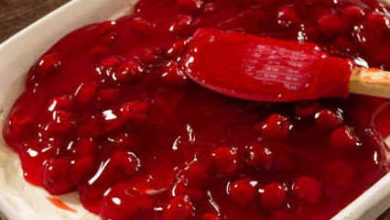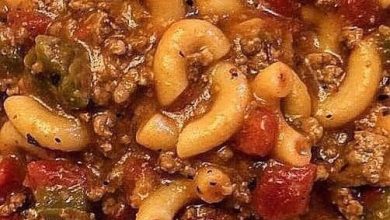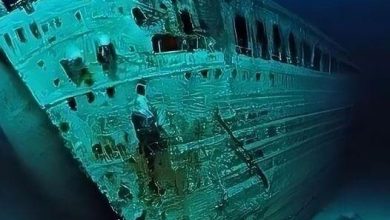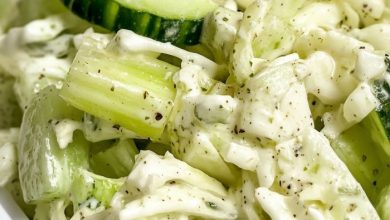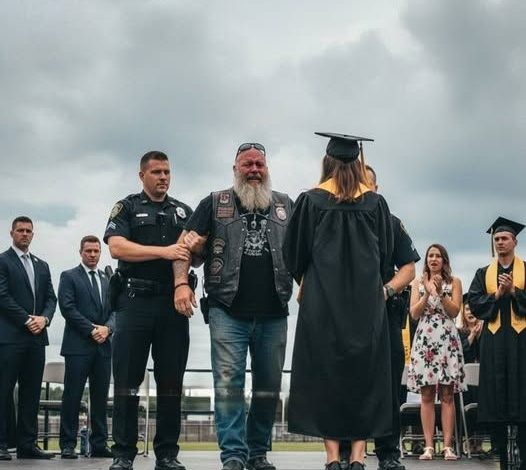
A Heartfelt Reunion: How a Father’s Sacrifice Changed Everything
He stood there in his worn leather vest, stained with dirt and grease, surrounded by a sea of strangers—doctors, lawyers, professors—the kind of people he’d never dreamed of standing beside. In his trembling hands, he held a small gift—something I didn’t want from him, from the man I’d spent the last ten years pretending was dead. He was a ghost I’d buried long ago, one I swore I’d never face again.
My classmates stared, eyes wide and unkind. A few whispered in curiosity, others in contempt. My professors murmured behind their hands, and the Hamiltons—Richard’s parents—wore expressions of tight-lipped disgust. This was supposed to be the day I left everything he represented behind—the trailer park, the grime, the chaos, the life I’d fought so hard to escape.
“Please, Katie. Just five minutes,” he said quietly, his voice rough, trembling with emotions I wasn’t ready to hear. Before I could respond, security stepped in, taking hold of his arms—firmly, but not harshly—pulling him away.
“I drove two hundred miles,” he rasped. “I just wanted to see you graduate. Just once.”
My body turned instinctively, my heart hammering so hard I thought it might burst. I couldn’t look at him—at the frayed patch on his vest, the grease under his nails, the desperate hope in his eyes that I’d refused to see for years. My crimson gown brushed against my legs as I walked away—from him, from everything I’d buried since I was fourteen, the moment I decided I was better than him.
I’d told everyone at Harvard my father was dead.
It was simpler that way—easier than admitting he was alive somewhere out there, riding with a motorcycle club in some forgotten corner of Kansas. Easier than confessing my tuition didn’t come from a trust fund, but from a made-up “family scholarship” I’d crafted to make my story sound clean.
“What did your father do?” my roommate once asked, glancing at the blank wall where no picture of him hung.
“He wasn’t anyone important,” I said evenly. “He died when I was young.”
And, in my mind, he had. The man who smelled of sawdust and sunlight, who’d read to me at night, was gone the day my mother left. The father I adored was replaced by a stranger—his face shadowed with fatigue, his hands scarred by years on the road, his love hidden beneath layers of oil and exhaust. He sent me away to live with my aunt, and the money came—quiet, consistent, impersonal. Money orders. Nothing more.
When he showed up at my graduation, he didn’t just embarrass me—he exposed me. Exposed the lie I’d built to hide the truth of who I was.
Richard squeezed my hand gently. “Don’t worry, darling,” he whispered. “The Hamiltons understand. Some people just can’t be fixed.”
I nodded, but a cold knot tightened in my chest.
Later that night, after the champagne toasts and forced smiles, I stepped outside my dorm. On the doorstep sat a small, battered wooden box—plain, unwrapped, waiting.
My pulse quickened. I brought it inside and shut the door, anger burning through me as I kicked it open. Inside was no cheap trinket—just an old, leather-bound journal, its cover cracked, tied with string.
It wasn’t a diary. It was a ledger.
The first entry caught my eye:
08/14/2015
Job: Run to El Paso (Medical Supplies)
Pay: $900
For: Katie’s braces.
Page after page—dates, jobs, payments. Every dollar he’d earned, every mile he’d ridden, every sacrifice made for me. The rides weren’t random—they were pieces of his life, written in ink and sweat. He wasn’t just surviving; he was working for me. For my future.
As I flipped through, the handwriting grew shakier. Then came the last entry:
05/20/2024
Job: Boston Run – Winter (Pharmaceuticals)
Pay: $3,000
For: Harvard – Final Semester.
Tucked into the back cover was a doctor’s note:
“Continued motorcycle operation will result in permanent disability and chronic pain. Immediate cessation required.”
The date was three years ago.
He’d been riding in agony for three years. Every mile, every delivery—each one a slow destruction of his body, endured just so I could stay in school.
The dirt on his vest wasn’t neglect. It was proof of his devotion—the grime of a man who bled for his daughter’s dreams.
And then I saw it: a small medical file folded behind the ledger. The diagnosis matched the note—Degenerative Disc Disease. Severe Rheumatoid Arthritis. The pain he’d hidden, the warnings he’d ignored—they were all there, laid bare on paper.
My hands shook. The truth was undeniable. The “trust fund” that funded my education was built on his suffering. The “dead father” I’d invented had been alive all along, breaking himself for me.
At the bottom of the box was a small silver key. Attached was a note, scrawled in his familiar hand:
“It’s not much. One bedroom. Close to the hospital where you said you’d do your residency. Paid in full. I’m proud of you, Katie. – Dad.”
I didn’t even change out of my gown. I just ran—clutching the ledger, the key, and the truth I could no longer hide.
He was there, just beyond campus, sitting by his old motorcycle. The same one from my childhood. His head was bowed, helmet beside him, the fading sunlight spilling over his shoulders.
“Dad!” I shouted, voice cracking.
He looked up, older and wearier than I remembered, eyes soft with something like forgiveness.
I ran to him, tears blurring my vision. When I reached him, I threw my arms around his neck, breathing in the familiar scent of leather, gasoline, and home.
“I’m sorry,” I sobbed. “I didn’t know. I didn’t understand.”
He held me tightly, his calloused hands trembling as he stroked my hair. “It’s okay, sweetheart,” he whispered. “I just wanted to see you graduate. That’s all I ever wanted.”
I looked into his eyes—tired, kind, unbroken—and all the bitterness I’d carried dissolved.
“You did more than that,” I said softly. “You gave me everything.”
He glanced down at the key in my hand. “That’s yours,” he said. “A place to start over. You deserve that.”
Tears streamed down my face as I nodded. My father—my hero—had given me more than a future. He’d given me the truth.
As the sun dipped low behind the campus, I realized that for the first time, I wasn’t running from my past. I was walking beside it. Beside him.
He wasn’t just my dad.
He was my hero.
And, finally, I was coming home.

